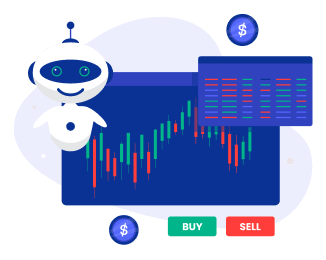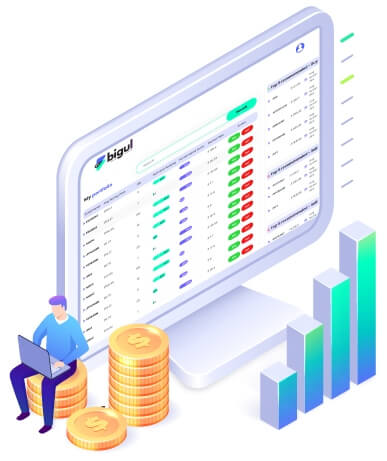List of Buyback
| Company Name | Offer Price | Open Date | Close Date | Issue Size | Record Date | |
|---|---|---|---|---|---|---|
|
Company Name
|
Offer Price 18.50 |
Open Date 16th Jan, 2026 |
Close Date 30th Jan, 2026 |
Issue Size 3597865.00 Cr |
Record Date 16th Jan, 2026 |
View Details |
|
Company Name
|
Offer Price 6.40 |
Open Date 16th Jan, 2026 |
Close Date 30th Jan, 2026 |
Issue Size 1704000.00 Cr |
Record Date 16th Jan, 2026 |
View Details |
|
Company Name
|
Offer Price 201.00 |
Open Date 28th Jan, 2026 |
Close Date 10th Feb, 2026 |
Issue Size 657599.00 Cr |
Record Date 28th Jan, 2026 |
View Details |
| Company Name | Offer Price | Open Date | Close Date | Issue Size | Record Date |
|---|---|---|---|---|---|
|
Company Name
|
Offer Price 15.00 |
Open Date 4th Feb, 2026 |
Close Date 17th Feb, 2026 |
Issue Size 8262000.00 Cr |
Record Date - |
| Company Name | IPO Type | Issue Date | Issue Price | |
|---|---|---|---|---|

|
||||
| Company Name | Offer Price | Open Date | Close Date | Issue Size | Record Date |
|---|---|---|---|---|---|
|
Company Name
|
Offer Price 6.81 |
Open Date 13th Jan, 2026 |
Close Date 28th Jan, 2026 |
Issue Size 2619500.00 Cr |
Record Date 13th Jan, 2026 |
|
Company Name
|
Offer Price 15.00 |
Open Date 13th Jan, 2026 |
Close Date 28th Jan, 2026 |
Issue Size 2289802.00 Cr |
Record Date 30th Dec, 2025 |
|
Company Name
|
Offer Price 0.50 |
Open Date 12th Jan, 2026 |
Close Date 27th Jan, 2026 |
Issue Size 1153917.00 Cr |
Record Date 12th Jan, 2026 |
|
Company Name
|
Offer Price 800.00 |
Open Date 8th Jan, 2026 |
Close Date 14th Jan, 2026 |
Issue Size 425000.00 Cr |
Record Date 5th Jan, 2026 |
|
Company Name
|
Offer Price 15.00 |
Open Date 6th Jan, 2026 |
Close Date 20th Jan, 2026 |
Issue Size 14976000.00 Cr |
Record Date 6th Jan, 2026 |
|
Company Name
|
Offer Price 12.15 |
Open Date 2nd Jan, 2026 |
Close Date 16th Jan, 2026 |
Issue Size 858000.00 Cr |
Record Date 2nd Jan, 2026 |
|
Company Name
|
Offer Price 92.20 |
Open Date 5th Jan, 2026 |
Close Date 19th Jan, 2026 |
Issue Size 38543837.00 Cr |
Record Date 5th Jan, 2026 |
|
Company Name
|
Offer Price 1557.15 |
Open Date 31st Dec, 2025 |
Close Date 13th Jan, 2026 |
Issue Size 1400000.00 Cr |
Record Date 31st Dec, 2025 |
|
Company Name
|
Offer Price 27.00 |
Open Date 31st Dec, 2025 |
Close Date 6th Jan, 2026 |
Issue Size 30000000.00 Cr |
Record Date 24th Dec, 2025 |
|
Company Name
|
Offer Price 10.00 |
Open Date 24th Dec, 2025 |
Close Date 7th Jan, 2026 |
Issue Size 16514290.00 Cr |
Record Date 24th Dec, 2025 |
|
Company Name
|
Offer Price 16.20 |
Open Date 23rd Dec, 2025 |
Close Date 6th Jan, 2026 |
Issue Size 5824853.00 Cr |
Record Date 23rd Dec, 2025 |
|
Company Name
|
Offer Price 10.00 |
Open Date 23rd Dec, 2025 |
Close Date 6th Jan, 2026 |
Issue Size 2186333.00 Cr |
Record Date 23rd Dec, 2025 |
|
Company Name
|
Offer Price 330.00 |
Open Date 18th Dec, 2025 |
Close Date 24th Dec, 2025 |
Issue Size 580000.00 Cr |
Record Date 12th Dec, 2025 |
|
Company Name
|
Offer Price 10.00 |
Open Date 28th Nov, 2025 |
Close Date 11th Dec, 2025 |
Issue Size 42658200.00 Cr |
Record Date 28th Nov, 2025 |
|
Company Name
|
Offer Price 30.00 |
Open Date 28th Nov, 2025 |
Close Date 11th Dec, 2025 |
Issue Size 934400.00 Cr |
Record Date 28th Nov, 2025 |
|
Company Name
|
Offer Price 25.00 |
Open Date 28th Nov, 2025 |
Close Date 11th Dec, 2025 |
Issue Size 37639342.00 Cr |
Record Date 28th Nov, 2025 |
|
Company Name
|
Offer Price 725.00 |
Open Date 20th Nov, 2025 |
Close Date 26th Nov, 2025 |
Issue Size 4137931.00 Cr |
Record Date 14th Nov, 2025 |
|
Company Name
|
Offer Price 1800.00 |
Open Date 20th Nov, 2025 |
Close Date 26th Nov, 2025 |
Issue Size 100000000.00 Cr |
Record Date 14th Nov, 2025 |
|
Company Name
|
Offer Price 75.00 |
Open Date 18th Nov, 2025 |
Close Date 24th Nov, 2025 |
Issue Size 9927438.00 Cr |
Record Date 1st Jan, 1970 |
|
Company Name
|
Offer Price 13.00 |
Open Date 14th Nov, 2025 |
Close Date 27th Nov, 2025 |
Issue Size 925782.00 Cr |
Record Date 30th Oct, 2025 |
|
Company Name
|
Offer Price 124.00 |
Open Date 14th Nov, 2025 |
Close Date 27th Nov, 2025 |
Issue Size 261300.00 Cr |
Record Date 30th Oct, 2025 |
|
Company Name
|
Offer Price 1762.54 |
Open Date 13th Nov, 2025 |
Close Date 26th Nov, 2025 |
Issue Size 7000355.00 Cr |
Record Date 29th Oct, 2025 |
|
Company Name
|
Offer Price 1639.18 |
Open Date 18th Nov, 2025 |
Close Date 1st Dec, 2025 |
Issue Size 41745264.00 Cr |
Record Date 18th Nov, 2025 |
|
Company Name
|
Offer Price 2.00 |
Open Date 11th Nov, 2025 |
Close Date 24th Nov, 2025 |
Issue Size 4403007.00 Cr |
Record Date 27th Oct, 2025 |
|
Company Name
|
Offer Price 1.00 |
Open Date 4th Nov, 2025 |
Close Date 18th Nov, 2025 |
Issue Size 4947410.00 Cr |
Record Date 1st Jan, 1970 |
|
Company Name
|
Offer Price 2.00 |
Open Date 3rd Nov, 2025 |
Close Date 17th Nov, 2025 |
Issue Size 7911800.00 Cr |
Record Date 3rd Nov, 2025 |
|
Company Name
|
Offer Price 100.00 |
Open Date 31st Oct, 2025 |
Close Date 14th Nov, 2025 |
Issue Size 975000.00 Cr |
Record Date 15th Oct, 2025 |
|
Company Name
|
Offer Price 16.40 |
Open Date 30th Oct, 2025 |
Close Date 13th Nov, 2025 |
Issue Size 1411388.00 Cr |
Record Date 7th Jul, 2025 |
|
Company Name
|
Offer Price 12.00 |
Open Date 30th Oct, 2025 |
Close Date 6th Nov, 2025 |
Issue Size 590070.00 Cr |
Record Date 6th Nov, 2025 |
|
Company Name
|
Offer Price 388.00 |
Open Date 3rd Nov, 2025 |
Close Date 17th Nov, 2025 |
Issue Size 37056229.00 Cr |
Record Date 3rd Nov, 2025 |
|
Company Name
|
Offer Price 21.19 |
Open Date 28th Oct, 2025 |
Close Date 12th Nov, 2025 |
Issue Size 12390009.00 Cr |
Record Date 27th Oct, 2025 |
|
Company Name
|
Offer Price 350.00 |
Open Date 27th Oct, 2025 |
Close Date 10th Nov, 2025 |
Issue Size 163800.00 Cr |
Record Date 9th Oct, 2025 |
|
Company Name
|
Offer Price 71.80 |
Open Date 27th Oct, 2025 |
Close Date 10th Nov, 2025 |
Issue Size 960000.00 Cr |
Record Date 9th Oct, 2025 |
|
Company Name
|
Offer Price 71.00 |
Open Date 23rd Oct, 2025 |
Close Date 6th Nov, 2025 |
Issue Size 793000.00 Cr |
Record Date 1st Jan, 1970 |
|
Company Name
|
Offer Price 264.00 |
Open Date 20th Oct, 2025 |
Close Date 4th Nov, 2025 |
Issue Size 1627698.00 Cr |
Record Date 1st Jan, 1970 |
|
Company Name
|
Offer Price 10.00 |
Open Date 20th Oct, 2025 |
Close Date 4th Nov, 2025 |
Issue Size 5346238.00 Cr |
Record Date 1st Jan, 1970 |
|
Company Name
|
Offer Price 11.00 |
Open Date 20th Oct, 2025 |
Close Date 4th Nov, 2025 |
Issue Size 4225442.00 Cr |
Record Date 6th Oct, 2025 |
|
Company Name
|
Offer Price 17.60 |
Open Date 20th Oct, 2025 |
Close Date 4th Nov, 2025 |
Issue Size 4894308.00 Cr |
Record Date 1st Jan, 1970 |
|
Company Name
|
Offer Price 170.00 |
Open Date 20th Oct, 2025 |
Close Date 4th Nov, 2025 |
Issue Size 197025660.00 Cr |
Record Date 6th Oct, 2025 |
|
Company Name
|
Offer Price 3231.77 |
Open Date 23rd Oct, 2025 |
Close Date 6th Nov, 2025 |
Issue Size 11840482.00 Cr |
Record Date 1st Jan, 1970 |
|
Company Name
|
Offer Price 10.00 |
Open Date 16th Oct, 2025 |
Close Date 31st Oct, 2025 |
Issue Size 2216500.00 Cr |
Record Date 1st Jan, 1970 |
|
Company Name
|
Offer Price 17.00 |
Open Date 14th Oct, 2025 |
Close Date 29th Oct, 2025 |
Issue Size 6924902.00 Cr |
Record Date 29th Sep, 2025 |
|
Company Name
|
Offer Price 30.00 |
Open Date 13th Oct, 2025 |
Close Date 28th Oct, 2025 |
Issue Size 260000.00 Cr |
Record Date 1st Jan, 1970 |
|
Company Name
|
Offer Price 57.51 |
Open Date 13th Oct, 2025 |
Close Date 28th Oct, 2025 |
Issue Size 910182.00 Cr |
Record Date 1st Jan, 1970 |
|
Company Name
|
Offer Price 41.00 |
Open Date 10th Oct, 2025 |
Close Date 27th Oct, 2025 |
Issue Size 2600000.00 Cr |
Record Date 25th Sep, 2025 |
|
Company Name
|
Offer Price 19.00 |
Open Date 9th Oct, 2025 |
Close Date 24th Oct, 2025 |
Issue Size 260000.00 Cr |
Record Date 1st Jan, 1970 |
|
Company Name
|
Offer Price 12.00 |
Open Date 7th Oct, 2025 |
Close Date 20th Oct, 2025 |
Issue Size 2600000.00 Cr |
Record Date 22nd Sep, 2025 |
|
Company Name
|
Offer Price 96.00 |
Open Date 3rd Oct, 2025 |
Close Date 16th Oct, 2025 |
Issue Size 52000.00 Cr |
Record Date 18th Sep, 2025 |
|
Company Name
|
Offer Price 13.00 |
Open Date 3rd Oct, 2025 |
Close Date 16th Oct, 2025 |
Issue Size 786077.00 Cr |
Record Date 1st Jan, 1970 |
|
Company Name
|
Offer Price 21.44 |
Open Date 30th Sep, 2025 |
Close Date 14th Oct, 2025 |
Issue Size 1560000.00 Cr |
Record Date 1st Jan, 1970 |
|
Company Name
|
Offer Price 9.70 |
Open Date 30th Sep, 2025 |
Close Date 14th Oct, 2025 |
Issue Size 2949500.00 Cr |
Record Date 16th Sep, 2025 |
|
Company Name
|
Offer Price 12.50 |
Open Date 17th Sep, 2025 |
Close Date 30th Sep, 2025 |
Issue Size 1560000.00 Cr |
Record Date 17th Sep, 2025 |
|
Company Name
|
Offer Price 47.14 |
Open Date 16th Sep, 2025 |
Close Date 29th Sep, 2025 |
Issue Size 8264942.00 Cr |
Record Date 16th Sep, 2025 |
|
Company Name
|
Offer Price 134.12 |
Open Date 16th Sep, 2025 |
Close Date 29th Sep, 2025 |
Issue Size 452400.00 Cr |
Record Date 16th Sep, 2025 |
|
Company Name
|
Offer Price 6.00 |
Open Date 16th Sep, 2025 |
Close Date 29th Sep, 2025 |
Issue Size 1947077.00 Cr |
Record Date 16th Sep, 2025 |
|
Company Name
|
Offer Price 290.00 |
Open Date 11th Sep, 2025 |
Close Date 17th Sep, 2025 |
Issue Size 6434482.00 Cr |
Record Date 5th Sep, 2025 |
|
Company Name
|
Offer Price 16.00 |
Open Date 11th Sep, 2025 |
Close Date 24th Sep, 2025 |
Issue Size 1272133.00 Cr |
Record Date 11th Sep, 2025 |
|
Company Name
|
Offer Price 135.00 |
Open Date 10th Sep, 2025 |
Close Date 23rd Sep, 2025 |
Issue Size 2361628.00 Cr |
Record Date 10th Sep, 2025 |
|
Company Name
|
Offer Price 602.03 |
Open Date 11th Sep, 2025 |
Close Date 24th Sep, 2025 |
Issue Size 6001268.00 Cr |
Record Date 11th Sep, 2025 |
|
Company Name
|
Offer Price 54.00 |
Open Date 9th Sep, 2025 |
Close Date 22nd Sep, 2025 |
Issue Size 1144052.00 Cr |
Record Date 1st Jan, 1970 |
|
Company Name
|
Offer Price 2.36 |
Open Date 4th Sep, 2025 |
Close Date 18th Sep, 2025 |
Issue Size 21102120.00 Cr |
Record Date 1st Jan, 1970 |
|
Company Name
|
Offer Price 5.65 |
Open Date 4th Sep, 2025 |
Close Date 18th Sep, 2025 |
Issue Size 9635840.00 Cr |
Record Date 1st Jan, 1970 |
|
Company Name
|
Offer Price 8.00 |
Open Date 1st Sep, 2025 |
Close Date 15th Sep, 2025 |
Issue Size 5315050.00 Cr |
Record Date 1st Jan, 1970 |
|
Company Name
|
Offer Price 75.00 |
Open Date 28th Aug, 2025 |
Close Date 11th Sep, 2025 |
Issue Size 2778399.00 Cr |
Record Date 1st Jan, 1970 |
|
Company Name
|
Offer Price 10.00 |
Open Date 26th Aug, 2025 |
Close Date 10th Sep, 2025 |
Issue Size 390000.00 Cr |
Record Date 1st Jan, 1970 |
|
Company Name
|
Offer Price 23.40 |
Open Date 1st Sep, 2025 |
Close Date 15th Sep, 2025 |
Issue Size 3627000.00 Cr |
Record Date 1st Jan, 1970 |
|
Company Name
|
Offer Price 35.00 |
Open Date 20th Aug, 2025 |
Close Date 3rd Sep, 2025 |
Issue Size 257294.00 Cr |
Record Date 1st Jan, 1970 |
|
Company Name
|
Offer Price 329.00 |
Open Date 22nd Aug, 2025 |
Close Date 9th Sep, 2025 |
Issue Size 23056825.00 Cr |
Record Date 1st Jan, 1970 |
|
Company Name
|
Offer Price 52.00 |
Open Date 19th Aug, 2025 |
Close Date 2nd Sep, 2025 |
Issue Size 2605200.00 Cr |
Record Date 1st Jan, 1970 |
|
Company Name
|
Offer Price 76.70 |
Open Date 22nd Aug, 2025 |
Close Date 9th Sep, 2025 |
Issue Size 52462320.00 Cr |
Record Date 1st Jan, 1970 |
|
Company Name
|
Offer Price 1554.60 |
Open Date 8th Aug, 2025 |
Close Date 22nd Aug, 2025 |
Issue Size 3762628.00 Cr |
Record Date 1st Jan, 1970 |
|
Company Name
|
Offer Price 10.00 |
Open Date 4th Aug, 2025 |
Close Date 18th Aug, 2025 |
Issue Size 3464900.00 Cr |
Record Date 4th Aug, 2025 |
|
Company Name
|
Offer Price 62.15 |
Open Date 4th Aug, 2025 |
Close Date 18th Aug, 2025 |
Issue Size 9169632.00 Cr |
Record Date 4th Aug, 2025 |
|
Company Name
|
Offer Price 717.50 |
Open Date 31st Jul, 2025 |
Close Date 13th Aug, 2025 |
Issue Size 175684.00 Cr |
Record Date 31st Jul, 2025 |
|
Company Name
|
Offer Price 32.00 |
Open Date 31st Jul, 2025 |
Close Date 13th Aug, 2025 |
Issue Size 7019667.00 Cr |
Record Date 31st Jul, 2025 |
|
Company Name
|
Offer Price 875.00 |
Open Date 29th Jul, 2025 |
Close Date 4th Aug, 2025 |
Issue Size 2000000.00 Cr |
Record Date 23rd Jul, 2025 |
|
Company Name
|
Offer Price 15.00 |
Open Date 29th Jul, 2025 |
Close Date 11th Aug, 2025 |
Issue Size 3419338.00 Cr |
Record Date 29th Jul, 2025 |
|
Company Name
|
Offer Price 1250.00 |
Open Date 25th Jul, 2025 |
Close Date 7th Aug, 2025 |
Issue Size 792118.00 Cr |
Record Date 25th Jul, 2025 |
|
Company Name
|
Offer Price 75.00 |
Open Date 24th Jul, 2025 |
Close Date 30th Jul, 2025 |
Issue Size 1066666.00 Cr |
Record Date 18th Jul, 2025 |
|
Company Name
|
Offer Price 9236.00 |
Open Date 24th Jul, 2025 |
Close Date 30th Jul, 2025 |
Issue Size 9157988.00 Cr |
Record Date 24th Jul, 2025 |
|
Company Name
|
Offer Price 504.41 |
Open Date 21st Jul, 2025 |
Close Date 1st Aug, 2025 |
Issue Size 37090327.00 Cr |
Record Date 21st Jul, 2025 |
|
Company Name
|
Offer Price 2.00 |
Open Date 18th Jul, 2025 |
Close Date 31st Jul, 2025 |
Issue Size 1944306.00 Cr |
Record Date 18th Jul, 2025 |
|
Company Name
|
Offer Price 5.00 |
Open Date 18th Jul, 2025 |
Close Date 31st Jul, 2025 |
Issue Size 9603178.00 Cr |
Record Date 18th Jul, 2025 |
|
Company Name
|
Offer Price 13.00 |
Open Date 18th Jul, 2025 |
Close Date 31st Jul, 2025 |
Issue Size 1063582.00 Cr |
Record Date 18th Jul, 2025 |
|
Company Name
|
Offer Price 92.50 |
Open Date 18th Jul, 2025 |
Close Date 31st Jul, 2025 |
Issue Size 750000.00 Cr |
Record Date 18th Jul, 2025 |
|
Company Name
|
Offer Price 2.00 |
Open Date 14th Jul, 2025 |
Close Date 25th Jul, 2025 |
Issue Size 1035473.00 Cr |
Record Date 14th Jul, 2025 |
|
Company Name
|
Offer Price 31.41 |
Open Date 11th Jul, 2025 |
Close Date 24th Jul, 2025 |
Issue Size 2485858.00 Cr |
Record Date 11th Jul, 2025 |
|
Company Name
|
Offer Price 90.00 |
Open Date 1st Jul, 2025 |
Close Date 14th Jul, 2025 |
Issue Size 1214200.00 Cr |
Record Date 1st Jul, 2025 |
|
Company Name
|
Offer Price 404.00 |
Open Date 12th Jun, 2025 |
Close Date 18th Jun, 2025 |
Issue Size 3712871.00 Cr |
Record Date 6th Jun, 2025 |
|
Company Name
|
Offer Price 42.00 |
Open Date 9th Jun, 2025 |
Close Date 20th Jun, 2025 |
Issue Size 4295200.00 Cr |
Record Date 9th Jun, 2025 |
|
Company Name
|
Offer Price 130.00 |
Open Date 2nd Jun, 2025 |
Close Date 6th Jun, 2025 |
Issue Size 460800.00 Cr |
Record Date 27th May, 2025 |
|
Company Name
|
Offer Price 464.00 |
Open Date 2nd Jun, 2025 |
Close Date 6th Jun, 2025 |
Issue Size 215520.00 Cr |
Record Date 27th May, 2025 |
|
Company Name
|
Offer Price 185.00 |
Open Date 29th May, 2025 |
Close Date 4th Jun, 2025 |
Issue Size 1081081.00 Cr |
Record Date 23rd May, 2025 |
|
Company Name
|
Offer Price 1.50 |
Open Date 29th May, 2025 |
Close Date 11th Jun, 2025 |
Issue Size 12407720.00 Cr |
Record Date 29th May, 2025 |
|
Company Name
|
Offer Price 395.40 |
Open Date 27th May, 2025 |
Close Date 9th Jun, 2025 |
Issue Size 53419567.00 Cr |
Record Date 27th May, 2025 |
|
Company Name
|
Offer Price 110.00 |
Open Date 22nd May, 2025 |
Close Date 4th Jun, 2025 |
Issue Size 390000.00 Cr |
Record Date 22nd May, 2025 |
|
Company Name
|
Offer Price 642.06 |
Open Date 22nd May, 2025 |
Close Date 4th Jun, 2025 |
Issue Size 10306866.00 Cr |
Record Date 22nd May, 2025 |
|
Company Name
|
Offer Price 1.00 |
Open Date 19th May, 2025 |
Close Date 30th May, 2025 |
Issue Size 64740.00 Cr |
Record Date 19th May, 2025 |
|
Company Name
|
Offer Price 25.00 |
Open Date 8th May, 2025 |
Close Date 22nd May, 2025 |
Issue Size 39676750.00 Cr |
Record Date 8th May, 2025 |
|
Company Name
|
Offer Price 770.00 |
Open Date 9th May, 2025 |
Close Date 16th May, 2025 |
Issue Size 22498.00 Cr |
Record Date 9th May, 2025 |
|
Company Name
|
Offer Price 25.00 |
Open Date 7th May, 2025 |
Close Date 21st May, 2025 |
Issue Size 1000805.00 Cr |
Record Date 7th May, 2025 |
|
Company Name
|
Offer Price 36.10 |
Open Date 30th Apr, 2025 |
Close Date 15th May, 2025 |
Issue Size 3333030.00 Cr |
Record Date 30th Apr, 2025 |
|
Company Name
|
Offer Price 270.00 |
Open Date 23rd Apr, 2025 |
Close Date 7th May, 2025 |
Issue Size 4395499.00 Cr |
Record Date 23rd Apr, 2025 |
|
Company Name
|
Offer Price 18.00 |
Open Date 21st Apr, 2025 |
Close Date 5th May, 2025 |
Issue Size 547700.00 Cr |
Record Date 21st Apr, 2025 |
|
Company Name
|
Offer Price 3.60 |
Open Date 21st Apr, 2025 |
Close Date 5th May, 2025 |
Issue Size 5538000.00 Cr |
Record Date 21st Apr, 2025 |
|
Company Name
|
Offer Price 158.00 |
Open Date 21st Apr, 2025 |
Close Date 5th May, 2025 |
Issue Size 2356954.00 Cr |
Record Date 21st Apr, 2025 |
|
Company Name
|
Offer Price 30.59 |
Open Date 16th Apr, 2025 |
Close Date 30th Apr, 2025 |
Issue Size 1546575.00 Cr |
Record Date 16th Apr, 2025 |
|
Company Name
|
Offer Price 16.50 |
Open Date 16th Apr, 2025 |
Close Date 30th Apr, 2025 |
Issue Size 1416780.00 Cr |
Record Date 16th Apr, 2025 |
|
Company Name
|
Offer Price 4.50 |
Open Date 15th Apr, 2025 |
Close Date 29th Apr, 2025 |
Issue Size 3400000.00 Cr |
Record Date 16th Apr, 2025 |
|
Company Name
|
Offer Price 15.00 |
Open Date 11th Apr, 2025 |
Close Date 28th Apr, 2025 |
Issue Size 1096792.00 Cr |
Record Date 11th Apr, 2025 |
|
Company Name
|
Offer Price 60.00 |
Open Date 11th Apr, 2025 |
Close Date 28th Apr, 2025 |
Issue Size 4943000.00 Cr |
Record Date 11th Apr, 2025 |
|
Company Name
|
Offer Price 22.00 |
Open Date 8th Apr, 2025 |
Close Date 24th Apr, 2025 |
Issue Size 260000.00 Cr |
Record Date 11th Apr, 2025 |
|
Company Name
|
Offer Price 391.00 |
Open Date 8th Apr, 2025 |
Close Date 24th Apr, 2025 |
Issue Size 247382.00 Cr |
Record Date 8th Apr, 2025 |
|
Company Name
|
Offer Price 22.72 |
Open Date 28th Mar, 2025 |
Close Date 15th Apr, 2025 |
Issue Size 757150.00 Cr |
Record Date 28th Mar, 2025 |
|
Company Name
|
Offer Price 213.00 |
Open Date 3rd Apr, 2025 |
Close Date 21st Apr, 2025 |
Issue Size 1598948.00 Cr |
Record Date 3rd Apr, 2025 |
|
Company Name
|
Offer Price 22.72 |
Open Date 28th Mar, 2025 |
Close Date 15th Apr, 2025 |
Issue Size 757150.00 Cr |
Record Date 28th Mar, 2025 |
|
Company Name
|
Offer Price 7.00 |
Open Date 25th Mar, 2025 |
Close Date 8th Apr, 2025 |
Issue Size 878878.00 Cr |
Record Date 25th Mar, 2025 |
|
Company Name
|
Offer Price 175.00 |
Open Date 19th Mar, 2025 |
Close Date 2nd Apr, 2025 |
Issue Size 130000.00 Cr |
Record Date 19th Mar, 2025 |
|
Company Name
|
Offer Price 60.00 |
Open Date 19th Mar, 2025 |
Close Date 2nd Apr, 2025 |
Issue Size 1140646.00 Cr |
Record Date 19th Mar, 2025 |
|
Company Name
|
Offer Price 408.90 |
Open Date 19th Mar, 2025 |
Close Date 2nd Apr, 2025 |
Issue Size 1843998.00 Cr |
Record Date 19th Mar, 2025 |
|
Company Name
|
Offer Price 10.00 |
Open Date 18th Mar, 2025 |
Close Date 1st Apr, 2025 |
Issue Size 3783000.00 Cr |
Record Date 18th Mar, 2025 |
|
Company Name
|
Offer Price 35.00 |
Open Date 13th Mar, 2025 |
Close Date 27th Mar, 2025 |
Issue Size 780000.00 Cr |
Record Date 13th Mar, 2025 |
|
Company Name
|
Offer Price 10.00 |
Open Date 10th Oct, 2025 |
Close Date 27th Oct, 2025 |
Issue Size 5200000.00 Cr |
Record Date 28th Feb, 2025 |
|
Company Name
|
Offer Price 500.00 |
Open Date 6th Mar, 2025 |
Close Date 12th Mar, 2025 |
Issue Size 7200000.00 Cr |
Record Date 28th Feb, 2025 |
|
Company Name
|
Offer Price 235.00 |
Open Date 27th Jan, 2025 |
Close Date 13th Feb, 2025 |
Issue Size 90042541.00 Cr |
Record Date 30th Jan, 2025 |
|
Company Name
|
Offer Price 390.00 |
Open Date 8th Jan, 2025 |
Close Date 21st Jan, 2025 |
Issue Size 80573273.00 Cr |
Record Date 1st Jan, 1970 |
|
Company Name
|
Offer Price 865.66 |
Open Date 16th Jan, 2025 |
Close Date 29th Jan, 2025 |
Issue Size 6298351.00 Cr |
Record Date 21st Jan, 2025 |
|
Company Name
|
Offer Price 236.00 |
Open Date 8th Jan, 2025 |
Close Date 21st Jan, 2025 |
Issue Size 2675972.00 Cr |
Record Date 1st Jan, 1970 |
|
Company Name
|
Offer Price 1025.00 |
Open Date 30th Oct, 2024 |
Close Date 6th Nov, 2024 |
Issue Size - |
Record Date 25th Oct, 2024 |
|
Company Name
|
Offer Price 1000.00 |
Open Date 16th Sep, 2024 |
Close Date 23rd Sep, 2024 |
Issue Size 500000.00 Cr |
Record Date 10th Sep, 2024 |
|
Company Name
|
Offer Price 400.00 |
Open Date 13th Sep, 2024 |
Close Date 20th Sep, 2024 |
Issue Size - |
Record Date 10th Sep, 2024 |
|
Company Name
|
Offer Price 44.00 |
Open Date 11th Sep, 2024 |
Close Date 18th Sep, 2024 |
Issue Size - |
Record Date 26th Aug, 2024 |
|
Company Name
|
Offer Price 4000.00 |
Open Date 9th Sep, 2024 |
Close Date 13th Sep, 2024 |
Issue Size - |
Record Date 11th Sep, 2024 |
|
Company Name
|
Offer Price 900.00 |
Open Date 11th Sep, 2024 |
Close Date 19th Sep, 2024 |
Issue Size 665000.00 Cr |
Record Date 5th Sep, 2024 |
|
Company Name
|
Offer Price 1200.00 |
Open Date 10th Sep, 2024 |
Close Date 17th Sep, 2024 |
Issue Size - |
Record Date 4th Sep, 2024 |
|
Company Name
|
Offer Price 1615.00 |
Open Date 9th Sep, 2024 |
Close Date 13th Sep, 2024 |
Issue Size 448018.00 Cr |
Record Date 3rd Sep, 2024 |
|
Company Name
|
Offer Price 450.00 |
Open Date 5th Sep, 2024 |
Close Date 11th Sep, 2024 |
Issue Size - |
Record Date 30th Aug, 2024 |
|
Company Name
|
Offer Price 160.00 |
Open Date 5th Sep, 2024 |
Close Date 11th Sep, 2024 |
Issue Size - |
Record Date 30th Aug, 2024 |
|
Company Name
|
Offer Price 750.00 |
Open Date 2nd Sep, 2024 |
Close Date 6th Sep, 2024 |
Issue Size 1500000.00 Cr |
Record Date 27th Aug, 2024 |
|
Company Name
|
Offer Price 4500.00 |
Open Date 2nd Sep, 2024 |
Close Date 6th Sep, 2024 |
Issue Size 288889.00 Cr |
Record Date 27th Aug, 2024 |
|
Company Name
|
Offer Price 3700.00 |
Open Date 2nd Sep, 2024 |
Close Date 6th Sep, 2024 |
Issue Size 237837.00 Cr |
Record Date 27th Aug, 2024 |
|
Company Name
|
Offer Price 380.00 |
Open Date 18th Dec, 2025 |
Close Date 24th Dec, 2025 |
Issue Size 2631578.00 Cr |
Record Date 12th Dec, 2025 |
|
Company Name
|
Offer Price 800.00 |
Open Date 29th Aug, 2024 |
Close Date 4th Sep, 2024 |
Issue Size - |
Record Date 29th Aug, 2024 |
|
Company Name
|
Offer Price 2500.00 |
Open Date 27th Aug, 2024 |
Close Date 2nd Sep, 2024 |
Issue Size - |
Record Date 21st Aug, 2024 |
|
Company Name
|
Offer Price 5000.00 |
Open Date 26th Aug, 2024 |
Close Date 30th Aug, 2024 |
Issue Size 1000000.00 Cr |
Record Date 20th Aug, 2024 |
|
Company Name
|
Offer Price 300.00 |
Open Date 23rd Aug, 2024 |
Close Date 29th Aug, 2024 |
Issue Size - |
Record Date 19th Aug, 2024 |
|
Company Name
|
Offer Price 2000.00 |
Open Date 22nd Aug, 2024 |
Close Date 28th Aug, 2024 |
Issue Size 500000.00 Cr |
Record Date 16th Aug, 2024 |
|
Company Name
|
Offer Price 12000.00 |
Open Date 22nd Aug, 2024 |
Close Date 28th Aug, 2024 |
Issue Size - |
Record Date 16th Aug, 2024 |
|
Company Name
|
Offer Price 675.00 |
Open Date 22nd Aug, 2024 |
Close Date 28th Aug, 2024 |
Issue Size - |
Record Date 16th Aug, 2024 |
|
Company Name
|
Offer Price 1200.00 |
Open Date 21st Aug, 2024 |
Close Date 27th Aug, 2024 |
Issue Size 1666666.00 Cr |
Record Date 14th Aug, 2024 |
|
Company Name
|
Offer Price 200.00 |
Open Date 20th Aug, 2024 |
Close Date 26th Aug, 2024 |
Issue Size 5000000.00 Cr |
Record Date 13th Aug, 2024 |
|
Company Name
|
Offer Price 465.00 |
Open Date 14th Aug, 2024 |
Close Date 21st Aug, 2024 |
Issue Size - |
Record Date 9th Aug, 2024 |
|
Company Name
|
Offer Price 220.00 |
Open Date 9th Aug, 2024 |
Close Date 16th Aug, 2024 |
Issue Size 12655970.00 Cr |
Record Date 5th Aug, 2024 |
|
Company Name
|
Offer Price 1460.00 |
Open Date 5th Aug, 2024 |
Close Date 9th Aug, 2024 |
Issue Size - |
Record Date 30th Jul, 2024 |
|
Company Name
|
Offer Price 4800.00 |
Open Date 22nd Dec, 2025 |
Close Date 29th Dec, 2025 |
Issue Size 625000.00 Cr |
Record Date 17th Dec, 2025 |
|
Company Name
|
Offer Price
|
Open Date 20th Jun, 2024 |
Close Date 26th Jun, 2024 |
Issue Size - |
Record Date 14th Jun, 2024 |
|
Company Name
|
Offer Price 1400.00 |
Open Date 4th Jul, 2024 |
Close Date 10th Jul, 2024 |
Issue Size 2150000.00 Cr |
Record Date 28th Jun, 2024 |

What is Buyback?
Buybacks or share repurchases refer to activities whereby the company acquires its own shares from existing shareholders. It can be done through a tender offer, which is done in the open market at a current price normally higher than the current market value. Open market buyback takes place in the secondary markets, while tender offers involve shareholders offering part of their shares for a given period of time. Other names for share buybacks include stock buyback or repurchase of shares. The offer price for repurchasing the stocks announced by the corporation usually exceeds the current market price. Buybacks are an alternate option to dividends, hence rewarding existing shareholders.
Impact of Buyback on Share Price
Buyback, in general, increases the share price by reducing outstanding shares and growing earnings per share, raising management's sentiment. Demand is thereby created in the marketplace for that stock. The actual effect depends on the prevailing market conditions at the time, the size of the buyback in relation to the market capitalisation, and investor perception about the uses of cash within the company. While buybacks do serve to jack up the stock prices in the short term, their long-term impact depends on the company's overall financial health and growth strategy. An investor should ask whether buybacks are the best use of capital relative to other investments or initiatives that could drive sustainable growth and shareholder value long term.

Why Share Repurchase
Several companies decrease dividend payouts and purchase back shares to benefit shareholders. Below are several reasons for initiating a share buyback:
Capital Efficiency
In India, share repurchases are a strategic financial move used by companies to maximise the efficient use of surplus cash. Instead of letting excess funds sit idle or in low-yield investments, companies opt to buy back their own shares. This approach returns value to shareholders, especially when the company perceives its stock as undervalued. It ensures that available capital is actively utilised to benefit investors and improve the financial health of the company.
Shareholder Value Maximisation
Probably the most common reason for share buybacks is to enhance share value. This occurs because decreasing outstanding shares increases EPS, which has a positive effect on investors. This could result in increased stock prices, benefiting shareholders. If a company believes that its stock is trading at undervalued prices, such a buyback will clearly be viewed by the market as a sign of confidence in further growth potential and thus attract more investors to the company's stock.
Preventing hostile takeovers
Share repurchases in India have perhaps found maximum application as a mechanism of defence against hostile takeovers. When a company buys back its shares, the number of outstanding shares is reduced, and the difficulty and cost associated with acquiring control increase for the hostile acquirer. This discourages any attempts at hostile takeovers since an acquirer will now have to collect more shares from the remaining outstanding shares of the company to achieve dominance. This normally makes the takeover economically unviable or totally discouraging such attempts.
Excess Cash
Most of the time, companies buy back shares when they generate excess cash either through profitability or the sale of assets. Instead of letting this cash lie idle, they use buybacks to return value to shareholders. This might be a better means of creating more value for shareholders and using corporate money for a better purpose than it otherwise would have in low-yielding investments or lying idle.
Tax-Efficient Dividends
Most of the time, share buybacks are preferred over dividends due to this tax efficiency factor. The government has put an inbound tax on dividend income, while gains from the sale of shares in a buyback are normally not subjected to the same taxation. This tax advantage makes share repurchases an attractive way for companies to return value to their shareholders. It is due to the fact that it allows investors to keep more of the repurchase proceeds compared with dividend income, thereby encouraging this means for capital distribution.
Share Buyback Benefits
Counterbalancing
The total number of outstanding shares may surge as a result of an employee stock option plan (ESOP), diluting equity. The company may, however, buy back its shares to avoid a reduction in the ownership proportion of current shareholders and balance those offered to employees.
Enhance Shareholder Ownership
A share buyback can increase the value of the remaining shares by reducing the supply of shares and increasing their demand. This can lead to an increase in the price of the company's stock. Furthermore, it prevents the excess capital build-up compared to the prior reporting period with a sole shareholder's limited capital expenditure (CAPEX) restrictions and hostile takeover requirements (or buyout).
Refined Financial Metrics
The repurchase strategy is often used when executives and management think it will increase demand for an undervalued share. Additionally, it improves the price-to-earnings (PE) ratio, returns on assets and equity and EPS, among other financial ratios and measures.
Tax Benefits
Shareholders might gain wealth without paying taxes due to the share repurchase process. They thereby unnecessarily increase their shares' value without incurring additional tax obligations.
Enhances financial performance
The more shares a company buys back, the fewer outstanding shares it will have. A decrease in outstanding shares may cause an increase in the earnings per share of the remaining shares, which leads to improved earnings, hence financial performance—making the company very attractive to investors.
Return of excess capital
In the case of a huge pile of extra cash with the firm and no good investment opportunity to deploy it on, the share buyback could be a way to return some of that excess capital back to shareholders.
Improves capital structure
The firm reduces the number of outstanding shares, thereby improving its capital structure at the same time, probably reducing financial risk.

Market Signaling
A share buyback program can be viewed as a statement of confidence in the corporation's future prospects and hence enhance investor sentiment towards the company.
Reasons to introduce a buyback:
- To provide existing stockholders with rewards beyond dividends.
- Must appear financially stable to draw in additional investors
- Boost stock price and earnings per share.
- Push the share price through a preferable price-to-earnings (P/E) multiple to prevent declining share value by reducing the stock's supply.

Share Repurchase Impact
It might cause an optimistic impression on investors by persuading them that the corporation owns enough earnings to remunerate. However, a buyback may also create a pessimistic perspective by disseminating the idea that the corporation lacks growth potential. Before taking any risks, the company must conduct a fundamental study and understand its requirements and risk appetite. Most importantly, this goal lowers the number of outstanding shares and aids in the ratio analysis, which positively impacts the share and shareholder value. Share buyback enables the organisation to transfer inactive excess capital to investors in its financial statements. While exploring dividend versus share repurchase, remember that there are two distinct approaches for repaying shareholders. When comparing dividends with share buybacks, the former shows a fixed taxable return for the immediate future, while the latter offers an uncertain, tax-efficient future return.
How Does Share Buyback Work?
-
Open Market Share Repurchase:
It refers to open market share repurchase, meaning that the shares are bought back in the open market through a broker. This could be done at regular intervals or in larger purchases, one-time in nature. -
Direct Negotiation:
The corporation individually approaches one or more shareholders whose prices include an extra charge for the share buyback. That is, negotiation of the price from the corporation to the related stakeholders directly makes this process very time-consuming but could turn out very cheap in some cases. -
Fixed Price Tender Offer:
It is a tender offer in which the firm offers to purchase a certain amount of its shares from shareholders at a fixed price. The shareholders are free to sell their entire holding or part of it to the firm. Again, it involves an additional premium on the basis of the latest stock price and ensures fast implementation process of the repurchase. -
Dutch Auction Tender Offer:
Another method is the introduction of a Dutch auction tender offer in which a company announces a price range and receives tenders from shareholders. Afterwards, it repurchases shares at the lowest price in the range required to buy back the desired number of shares. -
Reverse Stock Split:
This is another method through which the company reduces the number of outstanding shares by consolidating a number of shares into a single share. This can also be used for repurchasing shares since it reduces the number of outstanding shares. -
Private Transactions:
The corporation may buy back its shares through private transactions with individual shareholders or other institutional investors.
Methods of Buyback
Under Companies Act 2013 and SEBI regulations, there are several ways by which companies can buy back their own shares. The companies buy back their own shares from the market or the shareholders.
-
Open Market Purchase
This is a method by which companies in India buy back their shares like other investors from the open market. Companies decide on the maximum price and repurchase terms for the share buyback. The process of buyback continues until the company gets the desired quantity of shares or till the expiry of the stipulated time. This method is flexible in the sense that it permits companies to buy back the shares as per market conditions and the price of the shares, subject, of course, to regulatory limits. -
Tender Offer
In this case, the company will announce the number of shares it wants to buy back and the price at which it is ready to do so. Sell your shares at that price if you want to be a part of it. If the number of shares tendered is more than the buyback limit, then the business can accept them proportionately. The shareholders may sell or retain their shares in such a mechanism at the offered price. This enables the company to limit the buyback of shares to an extent, ensuring a more controlled buyback. -
Buyback through Stock Exchange
Here, the company buys back its shares by placing orders on the stock exchange, mentioning the price range and amount of buyback. This route is highly transparent since the buyback takes place in the open market. The rules and regulations regarding the buybacks implanted by the Stock Exchange shall have to be followed scrupulously by the companies while conducting buybacks through this route. It allows the stock exchange to do this, and the shares would be bought back from existing shareholders who are ready to sell their shares within this price range. -
Employee Stock Option Plan Buyback
When a company is buying back some of the shares it issued to its staff through employee stock options exercises. Staff sell ESOP shares back to the company at an administratively predetermined price to realise the value of the stock options and ensure that the company effectively manages its share ownership structure. Broadly practised as a reward or retention measure for employees but at the same time retaining controlled distribution of the company's shares.
Positive Impacts on Share Price
Geographically, share buybacks can benefit the share price of a company on several positive grounds if managed properly. It is beneficial for shareholders and also enhances the market image of the company.
-
Increased Earnings per Share:
A share repurchase reduces the outstanding shares, thereby increasing the EPS. If earnings remain the same, then distribution over a lower number of shares will increase the EPS. A higher EPS generally equates to an increased share price since investors are more inclined to purchase stock with increasing earnings, which are likely to aid in raising the share price. -
Increasing Shareholder Value:
Share repurchases increase shareholders' value. This involves the case where, with fewer outstanding shares, existing shareholders have a greater stake in ownership in the company. Essentially, an investor places greater value on a share when more ownership is attached to it. From this, a higher share price can be induced, which works to the betterment of shareholders. -
Market Confidence:
: A declaration for a share buyback program signals to the market that the company perceives its stock as being undervalued. It, therefore, elevates investor confidence and increases demand for the shares. Reacting to this, the share price might appreciate since more investors will be willing to acquire the stock, given the perception that such confidence by the company in its own shares means positive prospects, hence benefiting the share price ultimately. -
Growth Potential:
A company buying back its shares can potentially reflect its long-term growth prospects. Such vote of self-confidence could attract investors who are eyeing to find opportunities in perpetuated growth. The more investors who buy stock, the demand is driven, and therefore, the share price. The repurchase sends a signal that the company believes its stock is undervalued and that the future outlook will be phenomenal—a concrete fact that really raises the share price whenever investors buy it. -
Improvement in Financial Ratios:
Share buyback can result in an improvement in financial ratios like EPS, the P/E ratio, and ROE. With a reduced number of outstanding shares, earnings are divided among fewer shares, thus enhancing the EPS. The stock thus becomes more attractive with a better P/E ratio to investors. Moreover, share buyback can improve ROE, which is an indication of how a company is efficient at using shareholders' equity to generate profits. It may have positive effects on the improved ratio and the current share price in return.
Conclusion
The influence of buybacks on share prices is a complex corporate finance topic. Buybacks affect stock prices in both the short and long term. Due to reduced supply, they usually boost share prices in the short term, but the long-term effect depends on market sentiment, the company's financial condition, and the buyback timing. Investors should consider the broader financial health and strategic intentions of the company before interpreting share price movements in isolation. Buybacks can be a valuable tool when executed wisely, but they are just one piece of the puzzle in understanding a stock's performance.

Download Bigul Trading App!
Supercharge your trading on the go with the Bigul Trading App! Download now for instant access to cutting-edge features, real-time insights, and unparalleled convenience.













